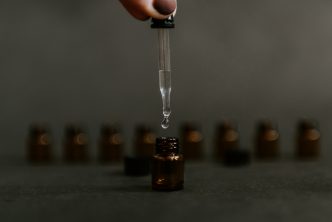Q-This time of year I seem to suffer endlessly from cold sores. Using drugs like Zovirax helps, but I wonder if there is any cure or a more natural way of dealing with them. CH, London……
A-The herpes simplex virus type-1 (HSV-1), which causes cold or canker sores, is circulating in about 25-40 per cent of the population. There is no cure for HSV-1. Once the herpesvirus enters your body, it forms a symbiotic ‘alliance’ with its host, living comfortably and chronically in your tissues and nerve cells. Most of the time, it is not virulent enough to cause systemwide infection (about 90-95 per cent of individuals with the HSV-1 are asymptomatic), but it is nevertheless strong enough to resist the immune system’s attempts to eradicate it.
Factors such as sun exposure, use of steroids, fatigue, cold weather, stress, arginine rich foods, pregnancy and the menstrual cycle can activate the virus and increase the chance of recurrent infections. Strengthening the immune system while avoiding or substantially reducing those factors which trigger an attack is one of the best ways to keep outbreaks from recurring.
Mild recurrences require no treatment in most cases. Every time a blister appears, there is the possibility of spreading it, for instance, through kissing and to other parts of the body, even the genitals (for example, if you touch the sore, then rub somewhere else). Good personal hygiene is essential during an outbreak.
Acyclovir (Zovirax), an antiviral drug introduced in 1979, is usually given to those with severe outbreaks, although a recent review showed that it is ineffective in recurrent infections (BMJ, 1996; 312: 6). Often it is given on a just in case basis. However, it does not prevent herpes from recurring or being transmitted from an infected person to others. For all its manufacturer’s claims, it can only lesson the painful period of herpes by 1.4 days, and the virus can become resistant with continued use.
Researchers are beginning to realise that herpes comes in two forms. The ‘immediate’ lesions appear within 48 hours of infection and comprise about one third of all herpes lesions and do not respond to acyclovir. The ‘delayed’ lesions appear after three to seven days and seem more responsive to the drug.
If taken orally, acyclovir has the potential to cause adverse reactions such as headache, itchy and sometimes scaly skin rashes, fatigue, confusional states, gastrointestinal upset, dizziness, vomiting and diarrhoea. It should not be used for herpes of the eye and is not recommended for children under the age of 12.
There are several alternative treatments. One natural treatment for cold sores as well as genital herpes is lemon balm (Melissa officinalis). Several clinical studies have provided impressive evidence of both a preventative and therapeutic effect against herpes simplex infection. Although lemon balm has been used for over 2000 years as a sedative, its importance increased in 1964 when water extracts of Melissa were discovered to have antiviral qualities as well.
One review reported on several studies of lemon balm in the treatment of cold sores. In one multicentre trial, 115 patients with cold sores of less than 72 hours’ duration were included in the study.
The patients were instructed to apply the Melissa containing cream to the lesions five times daily until healing of the lesion was complete. After four days, 60 per cent of patients had complete healing, which rose to 87 per cent after six days and 96 per cent after eight days.
Since other studies have determined that the natural recovery from herpes usually occurs within 10 to 14 days, the results from the study provided evidence that the Melissa cream promoted faster healing (Phytomed, 1994; 1: 25-31).
The Melissa extract used in the product is a 70:1 concentrate that has undergone a battery of quality control steps, including assessment of in vitro anti viral activity to insure potency. The antiviral assessment is critical. Rather than any single antiviral chemical, the Melissa extract in the formula contains several components that work together to prevent the virus from infecting human cells.
Besides lemon balm, a special witch hazel (Hamamelis virginiana) extract prepared to have a high proanthocyanidin content and low tannin content has been shown in laboratory studies to have an antiviral effect on HSV-1 (Planta Med, 1996; 62: 241-5). The extract or tincture can be applied neat on the sore.
There’s also evidence that lavender or tea tree oil, also applied neat to the lesion, may help clear up the infection (Aust J Pharmacol, 1988; 69: 276-8).
Olive leaf tincture (Tinctura olea foliorum) has been used in Europe for 75 years with no apparent ill effects. In a recent study, six subjects with genital herpes were given 2 ounces of olive leaf tincture every six hours. All subjects reported relief from their symptoms, and three claimed that their lesions had disappeared completely within 36-48 hours.
For the three subjects whose lesions remained, the dose was upped to 4 ounces, which resulted in additional improvement, but not a total resolution of the sores. Two of these individuals had recently acquired the herpesvirus and were probably experiencing a high level of viral shedding, while the third had recently gone off the Pill, which was thought to have possibly complicated the infection.
While using the tincture, the three subjects whose lesions healed were able to eat arginine rich foods, such as onions, corn and pork, which normally cause an outbreak, and still remain lesion free (Townsend Letter For Docs, May 1997: 110).
All subjects in the study had tried acyclovir, but found the olive leaf tincture to be superior.
Certain homoeopathic remedies may also be useful. For instance, herpetic eye infections can be successfully treated with infrequent, high potencies of Zincum sulphuricum (McFarland quoted in W Boericke, Pocket Manual of Homoeopathic Materia Medica, 9th edn, Philadelphia: Boericke & Tafel, 1927: 686). On other parts of the body, the topical application of the same remedy can reduce the symptoms quickly and inhibit recurrence (Br J Dermatol, 1981; 104: 191-213). Homoeopathic textbooks list more than 130 remedies for herpes simplex. According to WDDTY panel member Harald Gaier, one of the following clinically proven remedies depending upon your symptoms should also be considered: Acidum nitricum, Acidum sulphurosum, Arsenicum album, Cantharis vesicator, Cornus circinata, Glaphimia glabra, Hedera helix, Nepenthes distillatoria, Sarsaparilla, Tellurium or Urtica urens.
Finally, if you have nothing else in the house and you experience an outbreak, you can always try the old kitchen cupboard favourite by reaching for a cup of tea preferably Earl Grey. Folk wisdom has it that if you steep an Earl Grey tea bag for five minutes, cool it, then apply it to the lesion (repeating this several times a day), within four or five days, the lesions crust over and disappear, and don’t recur for several months (Spectrum, 1996; 52: 19).
Whatever alternative remedy you choose, it is vital for you to have an optimally functioning immune system to avoid herpes simplex virus (HSV) outbreaks (H Bader & N Souter, Patho physiology of Dermatologic Disease, New York: McGraw-Hill, 1984).
One often overlooked cause of immune suppression is food allergies. These can depress immune system function so, if you suffer from recurrent HSV-1 outbreaks, it is vital to rule these out.
You should also consider cutting sugar out of your diet. The white cells’ ability to fight infection will be dramatically reduced for six hours after consuming as little as 75 grams of any form of refined sugar-honey, table sugar, glucose, maltose, fructose or dextrose (Am J Clin Nutr, 1977; 30: 613; Dent Surv, 1976; 52: 46-8). Remember that drinking three glasses of unsweetened fruit juice will provide you with the same amount of sugar in the form of fructose.
It’s also a good idea to cut out chocolate and other foods rich in arginine.
Those who have a history of recurrent HSV cold sores are often iron deficient (Am J Clin Nutr, 1991; 53: 1087-101). They may also have abnormally low levels of the naturally occurring enzyme adenosine 51-monophosphate (AMP), important in cell synthesis of nucleic acid (JAMA, 1977; 237: 871-2). Although additional small doses of AMP may be beneficial, there is not enough data on its toxic effects to make widespread recommendations. What is known is that 75 milligrams of AMP can immediately bring on heart palpitations (CFS Forum, April 15, 1989; 2).
One experimental double blind study demonstrated that supplements of 200 milligrams of vitamin C and 200 milligrams of bioflavonoids four times daily, starting with the appearance of the characteristic tingling which proceeds an outbreak, can halve the time from onset to remission (Oral Surg, 1978; 45: 56-62).
Outbreaks can also be controlled by balancing levels of two amino acids, arginine and lysine, with the balance in favour of lysine (Dermatologica, 1987; 175: 183-90). Watch out, though, because large doses of lysine may raise your cholesterol levels.
Digestive enzymes also can help.
In one study, when particular enzymes (trypsin, chymotrypsin and papain) were compared to acyclovir in 90 volunteers with acute herpes infection, the supplements were found to work just as well as the
conventional drug in relieving pain and shortening the duration of attacks (Phytomed, 1995; 2: 7-15).
It is probably sensible to take a varied approach to controlling outbreaks, and include dietary changes, herbal or other medications and the avoidance of potential stressors in your life. It’s also wise to remember that HSV-1 outbreaks are often triggered by stress.





